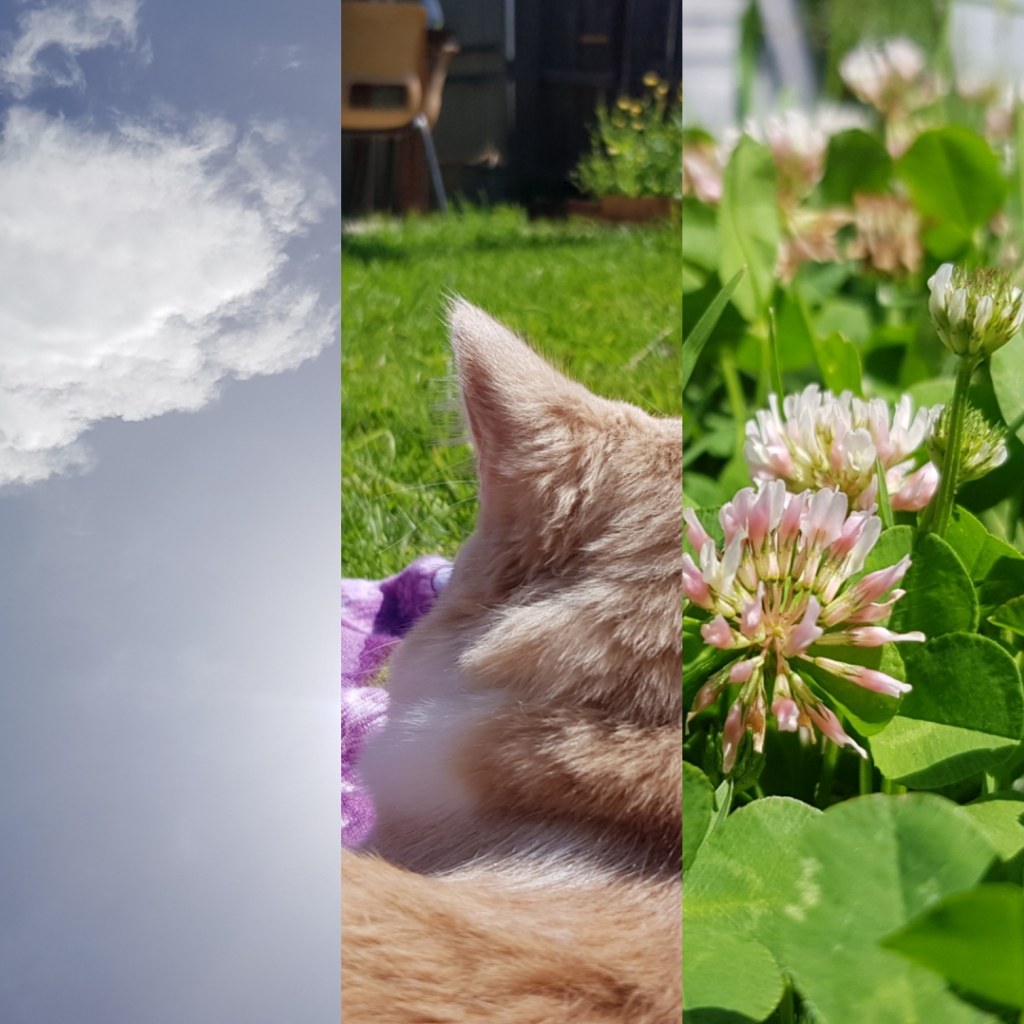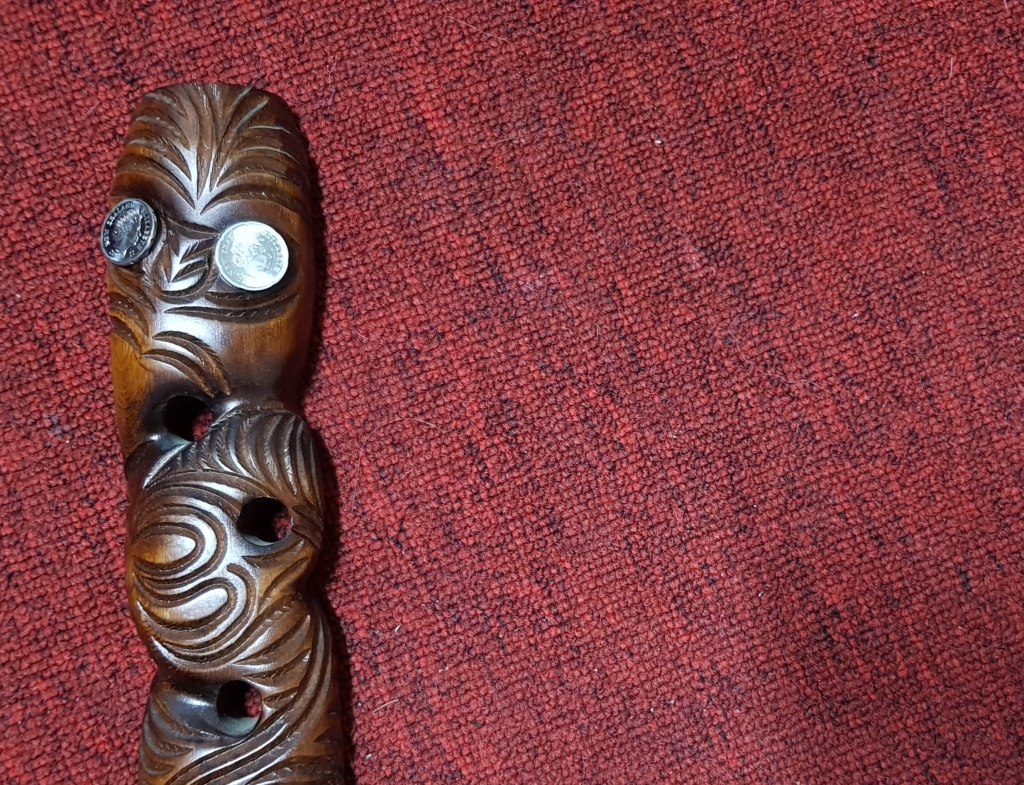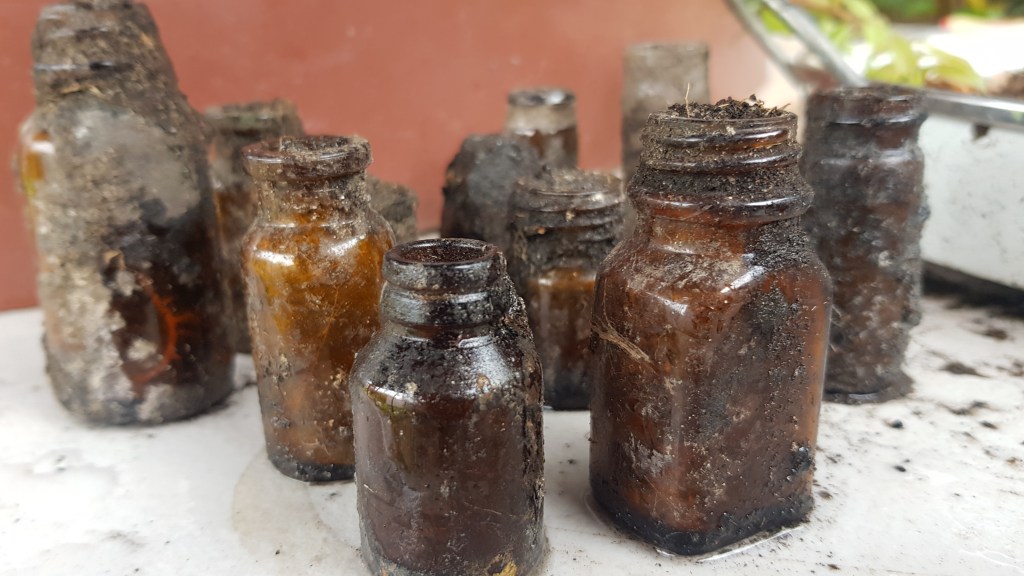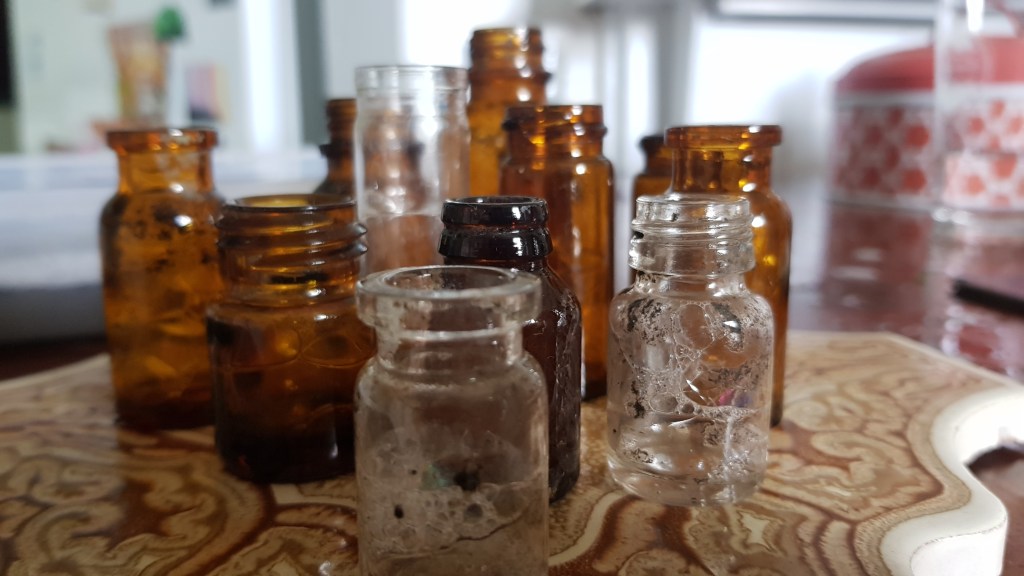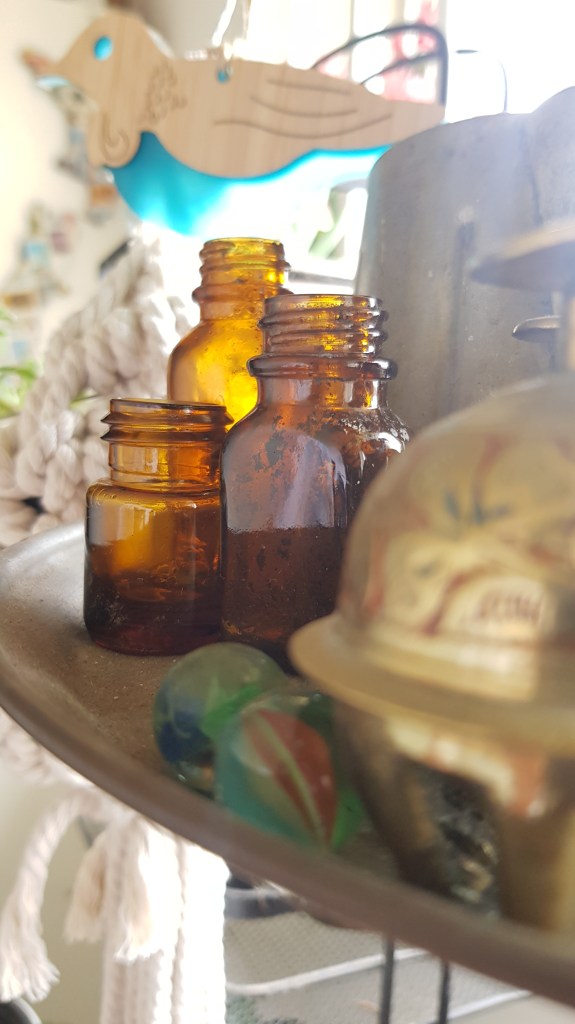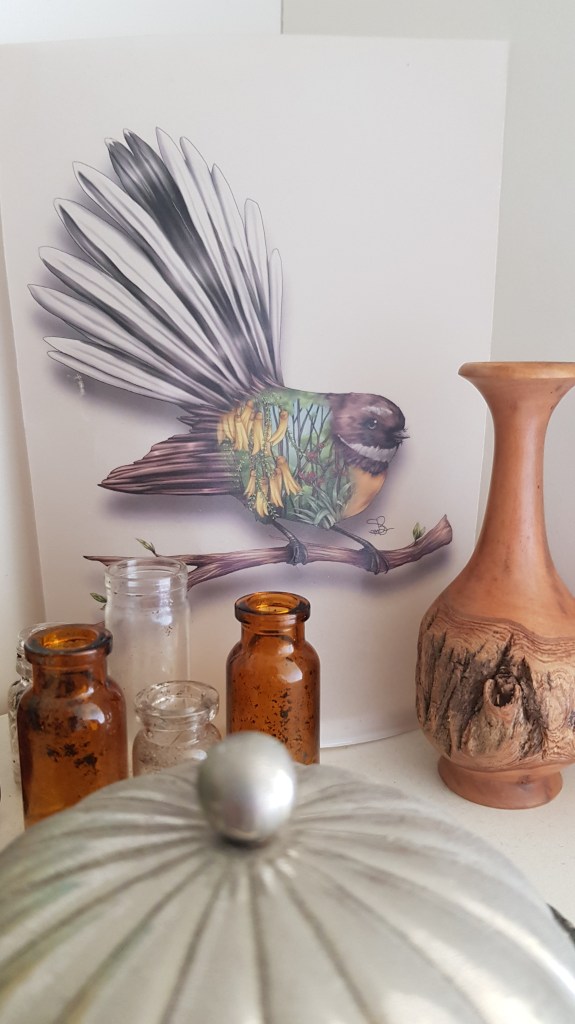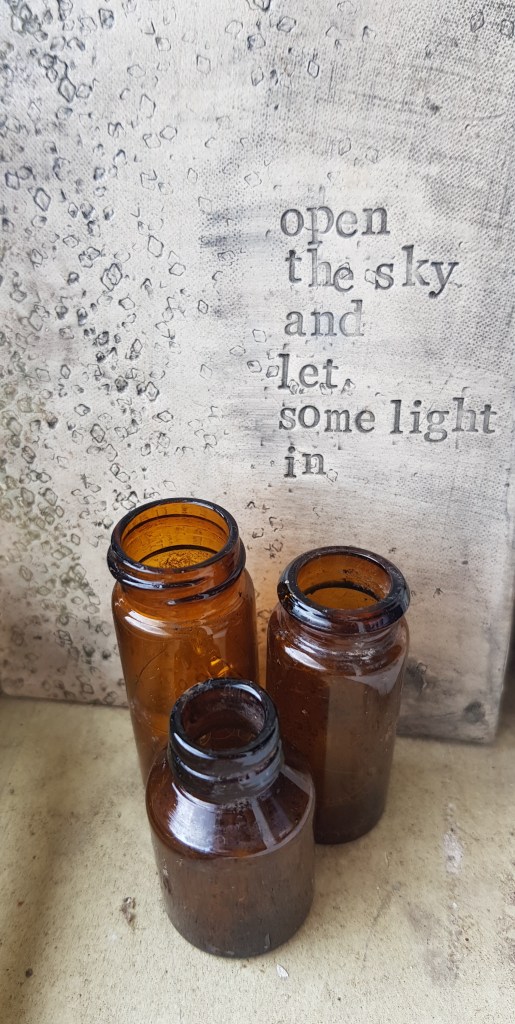Our garden isn’t in good shape, but in one particular corner the soil is full of rubbish – broken plastic, tin, glass… it’s kind of not that safe to work in. I’m trying to get time in our outdoor space regularly figuring every little bit helps, and at some point it will tip to beautiful. The other day I felt a glimpse of that when, in addition to all the rubbish above, I started pulling out whole bottles. After about an hour I had a bunch of them lined up.
I think that it might have been easy to think, “I’m just going to dig out this whole section and get clean fill in here”, but there was something to taking a slower approach, picking through and being more careful with my spade. Someone was careless putting all the rubbish out here but I will be care-full in trying to restore it. When we’re looking for ‘good soil’, maybe it’s important to know there may be things in the bad that are worth keeping as a promise of things to come.
